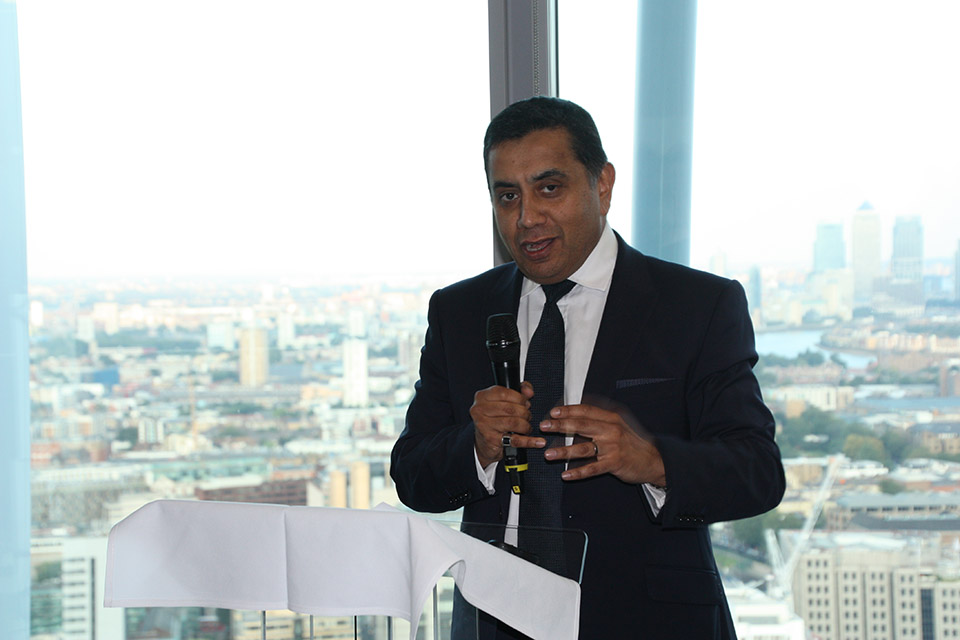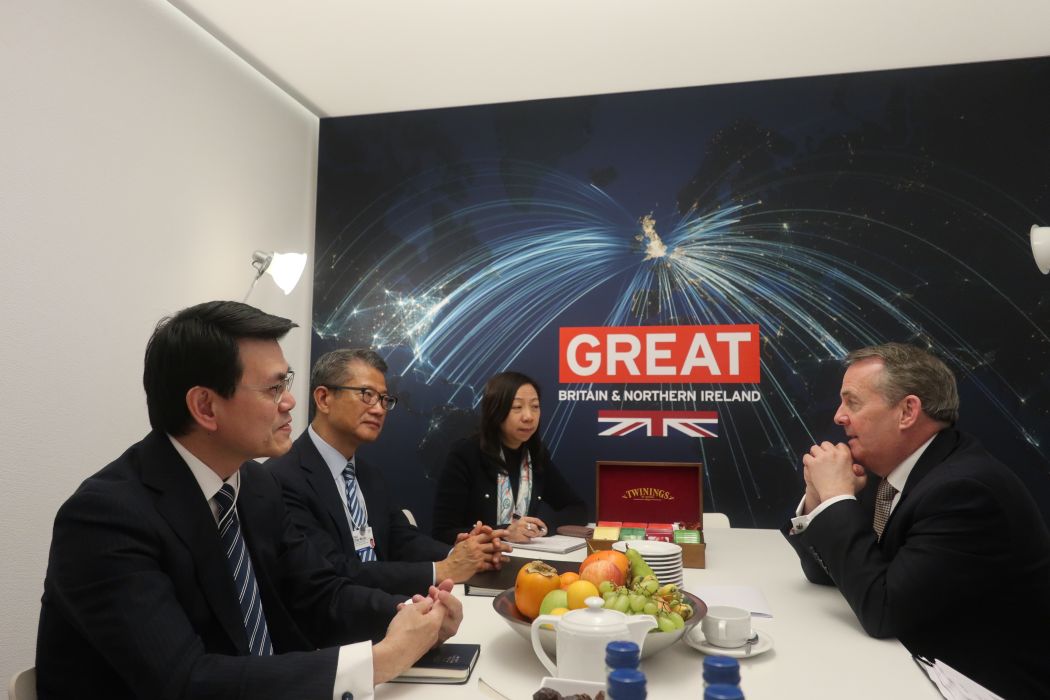The British government is exploring options to potentially include human rights provisions in future trade deals with Hong Kong, the UK’s Foreign and Commonwealth Office has said.
The consideration was revealed in a report issued on Tuesday by the UK parliament’s Joint Committee on Human Rights, which deals with human rights protections in Britain’s international agreements.
Lord Ahmad, minister of state for the Commonwealth and United Nations, wrote last month to the Joint Committee responding to suggestions concerning Hong Kong’s situation in January. Hong Kong Watch, a UK-based watchdog, suggested including human rights guarantees within the Sino-British Joint Declaration in any future free trade agreement with the city. The 1984 declaration gave rise to Hong Kong’s 1997 handover to Beijing.

“While in many areas ‘One Country, Two Systems’ continues to function well, there is continued pressure on Hong Kong’s high degree of autonomy and on the rights and freedoms guaranteed by the Joint Declaration and enshrined in the Basic Law,” Lord Ahmad wrote, adding the UK government have publicly raised concerns.
“We have also made clear in private to the Chinese and Hong Kong Special Administrative Region Governments that it is vital that Hong Kong’s rights and freedoms and high degree of autonomy are fully respected.”
“The UK’s exit from the EU provides us with an opportunity to explore how we can most appropriately use free trade agreements to pursue broader international objectives while recognising the need for a balanced and proportionate approach,” Lord Ahmad added. “The Government is exploring all options in the design of future trade and investment agreements, including relevant human rights provisions within these.”
Britain had raised concerns over the disqualification of lawmakers and candidates, the denial of entry of UK activist Benedict Rogers, the high-speed rail link’s controversial joint checkpoint arrangement, the de facto expulsion of British journalist Victor Mallet, and the ban on the pro-independence Hong Kong National Party among other issues.
London publishes a report on the implementation of the Sino-British Joint Declaration every six months, but the Joint Committee said the reports do “not seem to be resulting in adequate maintenance of the required freedoms for people in Hong Kong.”

‘Active treaty’
The report made reference to an incident in 2017 whereby a Chinese foreign ministry spokesperson said the Joint Declaration was a non-binding “historical document” which had no “practical significance.”
Lord Ahmad said in his letter that the Joint Declaration remains a legally binding treaty, registered with the United Nations, and continues to be in force.

“As co-signatory, the UK is committed to monitoring its implementation closely. Hong Kong’s success is underpinned by its high degree of autonomy, independent judiciary, and respect for fundamental rights and freedoms enshrined in the Joint Declaration,” he wrote.
The report called upon the UK government to undertake a review of its actions where human rights protections are not respected in practice.
It also called for the House of Commons Foreign Affairs Committee to follow up.
Hong Kong’s Democratic Party Chair Wu Chi-wai said the report showed the UK’s “grave concerns” over Hong Kong’s freedoms.
“The fact is that the international community has understood that the central and Hong Kong governments are harming ‘One Country, Two Systems,’ [our] ‘high degree of autonomy’ and ‘Hong Kong people ruling Hong Kong,’” he said.
“If the Chinese Communist Party does not stop, and the Hong Kong government continues to help this tyrant persecute its people, Hong Kong will have to pay a price it cannot pay,” he added.
